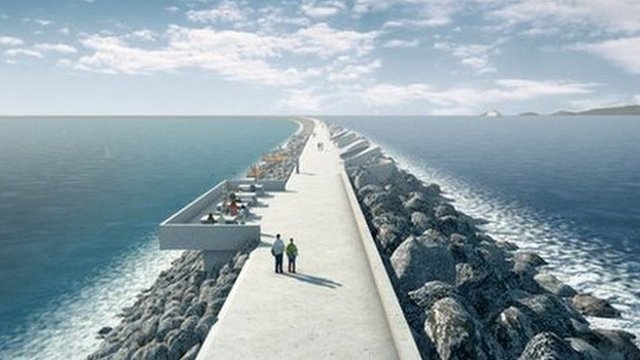Surveys are just a matter of opinion
South Wales Evening Post - 6 May 2014
Have you noticed how weather presenters make their predictions with easy authority but then quietly add that Mother Nature could have different ideas?
Things are no different in the world of surveys and opinion polls. Forecasts are made but disclaimers apply – only more so.
It might sound a little odd coming from someone like me who is forever quoting research, but a truly independent survey is as rare as unicorn poo. There is nearly always an underlying agenda at work.
What you have to consider every time is: what questions were asked, how were they phrased and who did the asking.
There's also the matter of validation. As the joke goes, a recent survey of men revealed that the first thing they notice about a woman is their eyes; while women say the first thing they notice about men is that they're a bunch of liars.
So when a report from the left-of-centre Social Market Foundation warned that low pay is hurting Britain's productivity, the expectation was that these findings were designed to back calls from trade unions for state investment in skills.
That might be true, but it so happened that the study coincided with an earlier statement by CBI boss John Cridland, who's been arguing for wages to rise as the economy improves. His take, as spokesman for a major employers organisation, is that a skills shortage caused by low pay disincentives could hamper the recovery.
Two similar viewpoints in relatively quick succession don't make something a fact – or even a trend. And yet I heard the same message from Steve Phillips who was speaking the other night at a Federation of Small Businesses event in Port Talbot.

Answers always depend on the questions asked
Besides being a local authority chief executive (Neath Port Talbot), Steve also heads up the secretariat supporting the Swansea Bay City Region.
It was encouraging to hear that the focus among the regional partners is on equipping employers with a better skilled and better educated workforce plus a decent infrastructure.
You also got the impression that putting together a complex series of strategies to boost prosperity was the easy part.
What comes next is the tough job of delivering on the ground.

City Region backing for tidal lagoon?
Chatting before the meeting, I was impressed to hear Steve suggest that the City Region should be championing third-party projects that bring economic benefits in their own right.
This makes a refreshing change from the public sector mindset that normally pays token lip service to anything "not invented here" – and especially if the proposal is viewed as competition when government grants are involved.
Giving your backing in this manner does carry a few risks, I suppose.
At least that's the experience of Cardiff City Region counterparts who are regularly accused of being little more than cheerleaders for the Metro project. For myself, I'd like to see some examination of the idea that the new body could maybe operate as one of the proposed regional planning authorities I mentioned a few weeks ago.
I accept that it would be a bit of a balancing act, but the key thing is that the City Region stays relevant to the stakeholders it's there to support.
Regardless of what I said earlier about surveys, some note needs to be taken that a recent poll of local business group members only gave the initiative their qualified support.
Maybe that opinion is down to a lack of information. Maybe one or two people are feeling a little displaced by events.
Whatever the reason, work is needed to build relationships.
To use a rugby analogy, it will take some sweat and teamwork to gain the hard yards needed for real progress. It's not just a matter of putting your flag in the sand, rebranding yourself as Swansea Bay and expecting everyone else to fall in line.
Anyone who thinks otherwise should stick to forecasting the weather.